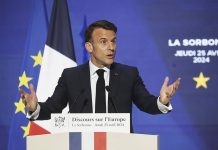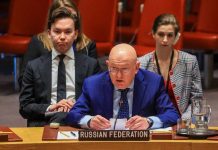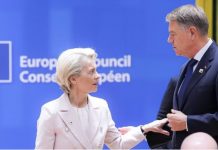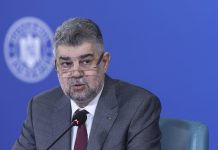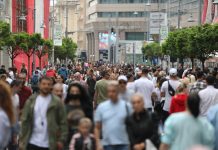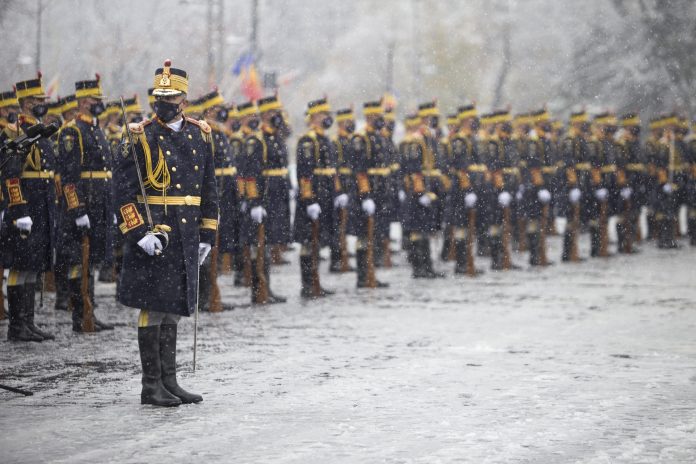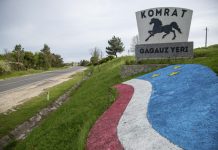Romanians celebrated their national holiday on Tuesday but the coronavirus pandemic cast a shadow over the celebrations which were held days before the country goes to the polls.
There was no customary large military parade or thousands of flag-waving Romanians lining the streets of Bucharest and other cities.
Some 150 soldiers took part in a scaled-down ceremony at the Triumphal Arch in Bucharest on Tuesday morning. There was a minute’s silence to remember soldiers who died in the service of Romania and the more than 11,000 Covid-19 patients who have died during this year’s pandemic.
President Klaus Iohannis laid a wreath and paid homage to the moment 102 years ago when the Romanian Kingdom reunited with Transylvania, Bessarabia and Bucovina in the aftermath of World War I.
“Our history has been marked by numerous crises and difficult stages, which have often threatened people’s lives, our freedom, the communities’ identity and the existence of the state,” the president said.
“The road ahead isn’t easy but together with its European partners, Romania can see this crisis as a way to reignite growth and prosperity,“ he said.
Speaking about the upcoming vote, he said: „It’s the moment for a responsible and realistic strategy to repair things that are deeply broken and to develop ambitious long-term projects.”
“It’s the moment to build a Romania for the future, something that is more than a mere promise, more concrete than a dream and nearer than the horizon of our hopes. A parliament with honest, hard-working, better people,” he said.
The governing Liberal Party which Mr. Iohannis used to lead is expected to win the ballot, although support has eroded during the pandemic.
The Liberals, who currently have a minority government will need to form an alliance with the reformist Save Romania-PLUS party to secure a parliamentary majority.
The Great Union Day which is celebrated on Dec. 1 marks the unification of Transylvania, Bassarabia or Moldova, and Bucovina with the Romanian Kingdom in 1918, as a result of the breakup of the Austro-Hungarian and Russian Empires at the end of World War 1.
Romania capitulated to Germany in March 1918 overwhelmed by losses and joined the war again shortly before its end, in November 1918.
President Iohannis will decorate members of civil society and the medical professionals Tuesday afternoon for their work during the pandemic.
Normally thousands line the streets to watch the military parade in Bucharest and in the Transylvanian city of Alba Iulia where Romania’s reunification was held in 1922.




